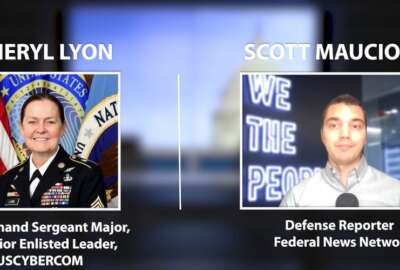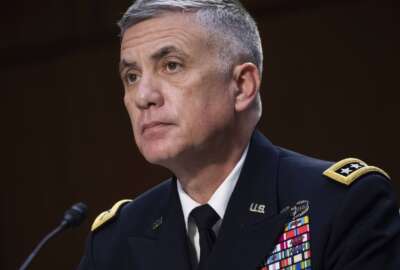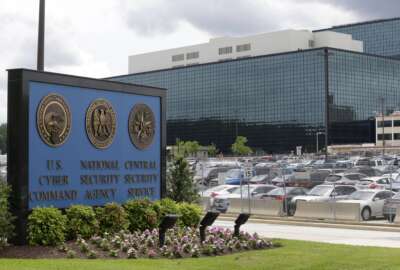U.S. Cyber Command in the coming months will brief Pentagon leadership on options for reforming how the military generates cyber forces for CYBERCOM.
Gen. Timothy Haugh, in his first public remarks since taking over as head of CYBERCOM and the National Security Agency in early February, said the force generation study is due to the secretary of defense this summer.
CYBERCOM has traditionally relied on the military services to train cyber warriors for the Cyber Mission Force. With that leading to readiness issues, officials have also looked to adopt more of a U.S. Special Operations-command type model. And some have called on the Defense Department to establish an independent cyber force.
“We’re doing a study right now that will evaluate, and we brought in an outside think tank to help us look at this, what are the spectrum of options?” Haugh said at the CYBERCOM Legal Conference today. “There are also a number of things in between there that we should consider, and also whether or not any of that menu should be applied together. So we’re evaluating that.”
Last year, Congress tasked CYBERCOM with evaluating the readiness of the military services in their ability to provide forces to the command. Haugh said the study identified five specific things the services could improve upon.
“Most of those things were areas that had previously been tackled by SOCOM, as it looks at how the Special Operations Forces are managed,” Haugh said. “And it was around personnel policies. It was in how the services leverage tools that Congress had given for retention to each of the services, and it was about assignment policies.”
In the year since that study, Haugh said each of the services have taken individual actions to improve readiness. He pointed to the Army’s new incentive pay for cyber personnel; the Air Force’s new tech track pilot for extending an individual’s service in the cyber field; and the Navy’s new cyber rating, as well the Marine Corps’ new eight-year initial enrollment for a cyber officer.
“Those are all really good examples of something each service has done,” Haugh said. “We would like to see them all raise that floor farther.”
Retired Gen. Paul Nakasone, the former head of CYBERCOM and the NSA, said he wanted to see a “bold move forward” with what’s been dubbed CYBERCOM 2.0
The command is better positioned to control its future thanks to a new provision in law. The fiscal 2024 appropriations bill passed by Congress last month gave CYBERCOM new programming and budgeting authorities. Referred to as “enhanced budget control” by Haugh, the authorities gives the head of CYBERCOM direct control over the planning, programming, budgeting and execution of resources for the Cyber Mission Force.
“We now have the budget responsibility for equipping the offensive and defensive cyberspace force for the Department of Defense, that force that we operate,” Haugh said. “So now we have the ability to be able to validate a requirement under our authorities that we’ve been given. We can allocate the resources against whatever that need is. And then we will be able to acquire that under our own authorities, either inside U.S. Cyber Command or in partnership with the services, where we drive the requirement, we have the resources, and now we’re going to be able to produce the capability that we need for our forces. That’s a pretty radical change from where we started.”
Integral to the conversations around the future of CYBERCOM is a new assistant secretary of defense for cyber policy position announced by DoD last month. The job serves as the secretary of defense’s top advisor on matters related to military cyber force and activities.
Secretary of Defense Lloyd Austin nominated the Army’s principal cyber advisor, Michael Sulmeyer, to serve in the new role. While he awaits confirmation, Ashley Manning is serving as acting ASD for cyber policy.
Manning and Haugh are set to testify before the House Armed Services Committee’s cyber, information technology and innovation subcommittee on Wednesday.
“It’ll be our opportunity to talk about what we see this looking like,” Haugh said of the new partnership.
Copyright
© 2024 Federal News Network. All rights reserved. This website is not intended for users located within the European Economic Area.





